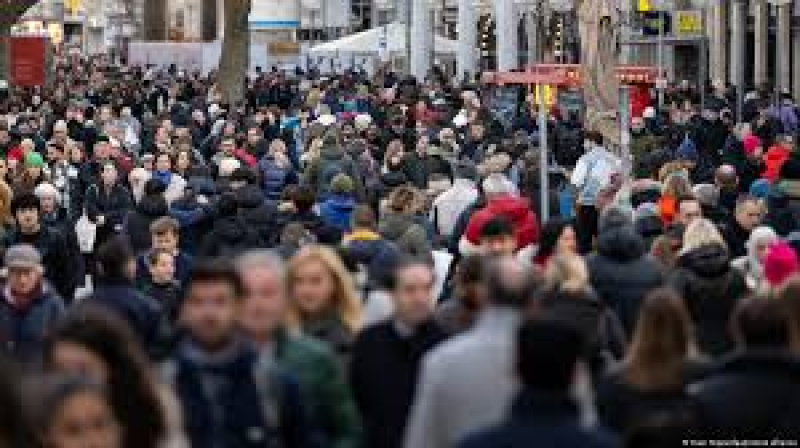- Janaza of six Bangladeshi peacekeepers held at Dhaka Cantonment |
- Bangladesh stock market loses Tk 10,500cr in a week |
- Dhaka’s air turns ‘very unhealthy’ on Sunday morning |
- Project to transform N’ganj into a climate-resilient green city |
- Sustainable, rights-based solutions to Rohingya crisis urged |
Germany's population grows by 300,000, driven by migration

Germany's population rose by 300,000 people over the course of 2023, the Federal Statistical Office, known as Destatis, reported Thursday. At the end of 2023, Germany's population came in at 84.7 million people, the office said.
The growth kept in line with the average rate seen between 2012 and 2021, the office said.
The increase was far lower than in 2022, however, when an unusually large increase of some 1.1 million people was recorded, mainly driven by the influx of Ukrainians fleeing Russia's invasion.
As with other years, net migration, or the balance between people who emigrate and immigrate, was the driving factor for the population growth, given a gradual reduction in the size of the population within Germany.
Germany saw a net migration of somewhere between 680,000 and 710,000 people, the office said, around double the net population growth.
As in all years since German reunification, the balance of births and deaths was again negative in 2023, as more people died than were born, the agency said in a statement.
Migration continues to be a key topic in Germany where the government has bolstered border controls and promised to speed up deportations.
At the same time, the government has addressed the need for foreign workers with reforms easing access to citizenship, reports DW.

